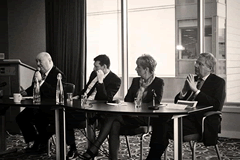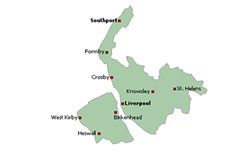Our latest poll is asking Downtown members and supporters if they support for the introduction of a Metro Mayor Governance model for Leeds, though at the moment there is little inclination from our region’s civic leaders to adopt this structure and a rather ambivalent response from the wider community to the idea.
There is certainly little mileage in the argument that just because Greater Manchester is to have a Metro Mayor means that Leeds should have one. This is the lowest common denominator narrative that must be resisted by those of us who believe that a figurehead to lead on the strategic issues for the city region and act as a genuine champion for the Leeds City Region on the national and international stage would be a force for good.
The purpose of the role, in part, ought to be to widen the democratic process, engage people in a more exciting and meaningful election, and provide a more transparent and accountable city region leadership than the one we have at present.
It is odd that council leaders claim that the imposition of a Metro Mayor is ‘undemocratic’ whilst supporting the existing structure that sees the leader of the regions Combined Authority elected by small groups of council leaders in behind closed doors deals.
Nevertheless, there is no denying that if we are to enjoy the type of political renaissance that was witnessed during the Scottish Referendum this year, make politics sexy to the majority rather than just the ‘anoraks’ and activists, then we should not simply have party candidates selected in the same old fashioned way, with constituency associations and Trades Unions stitching things up. We must do better than that.
That is why I like the idea of ‘Primaries’ to select candidates of all the mainstream parties, particularly for these ‘new’ positions that are set to be created in all city regions across England sooner or later.
Primary elections would allow a much broader number of the electorate to take part in seeing candidates, quizzing them, and supporting the nominee that they felt was best for the job. It would open up the democratic process to a whole range of people who have become disillusioned and disengaged from politics, partly due to the party machines basically selecting candidates who will inevitably be elected in the many ‘safe’ seats that exist, not only in Leeds, but in all English cities.
The suggestion, as was made by several delegates in Manchester at our conference there last week, that the Metro Mayor should not be ‘a bloody Councillor’ may strike a chord for those who think that a Russell Brand type character would shake things up and get things done. The reality is that some experience of political management is not only an advantage, but an essential component to the job – otherwise we will just have faceless, unaccountable regional civil servants running the show.
However, that doesn’t mean that we should just accept the Status Quo for selection purposes, or rule out some new people throwing their hat in the ring for these potentially exciting new posts. You never know, we may even get a woman or two having a go. And as Ken Livingstone proved in the first London Mayoral election, a decent Independent can stir things up too.
If we are talking about a new way of doing politics, a sexier way, then surely Primaries are at least worth considering.






